AI-Powered Healthcare Innovation Bridges Global Health Equity and Digital Pedagogy
A student-led startup from San Diego City University (SDCU) has secured a landmark $1 million grant from the Bill & Melinda Gates Foundation to deploy an AI-driven malaria diagnostic chatbot in high-burden regions. This breakthrough, rooted in SDCU’s Ethical AI Lab and Global Health Innovation curriculum, exemplifies how online education ecosystems can incubate solutions to global health crises.
Technological Innovation and Diagnostic Precision
The chatbot, MalaScope, leverages cutting-edge natural language processing (NLP) and federated learning to provide low-bandwidth, multilingual diagnostic support in underserved regions. Key technical features include:
- Symptom Parsing Engine:
- Trained on 120,000+ anonymized clinical cases from WHO archives, the transformer-based model achieves 94% accuracy in distinguishing malaria from dengue, typhoid, and viral fever.
- Adaptive dialogue trees account for regional symptom nomenclature (e.g., Swahili terms for “chills” vs. Hindi equivalents).
- Federated Learning Architecture:
- Deployed across 17 African nations, the system trains on local healthcare data without compromising patient privacy. Federated averaging (FedAvg) algorithms improve diagnostic yield by 29% while ensuring compliance with GDPR and HIPAA.
- Low-Cost Edge Deployment:
- Runs on solar-powered tablets via SDCU’s lightweight EdgeMind framework, consuming 89% less energy than cloud-dependent models.
“This isn’t just code—it’s a lifeline,” stated Dr. Amina Al-Farsi, SDCU President. “MalaScope turns smartphone penetration into a public health asset, even in regions with no internet.”
Decentralized Development and Global Collaboration
The project epitomizes SDCU’s hybrid learning model:
- Student Contributors: Computer science majors in Nairobi optimized the NLP pipeline, while public health students in Mumbai designed context-aware triage protocols.
- Faculty Mentors: Ethics professors co-developed consent frameworks to address data sovereignty concerns in partner nations.
- Community Validation: Field tests involved 4,200 caregivers in rural Uganda, who rated MalaScope’s usability 4.7/5 stars despite 68% having no prior smartphone experience.
“This model dissolves traditional hierarchies,” noted a lead developer. “While Stanford researchers reviewed our architecture, grandmothers in Malawi taught us to phrase questions about fevers in Chichewa proverbs.”
Educational Integration and Skill Development
MalaScope is central to SDCU’s Health Tech micro-credentials:
- Virtual Case Competitions: Students design chatbots for fictional outbreaks, with top solutions tested in WHO simulation labs.
- Ethical AI Workshops: Gamified modules let learners balance diagnostic accuracy with data privacy, addressing biases like underreporting in women’s health data.
- Global Certification: Graduates earn IBM-validated badges in AI for Global Health, recognized by 57 national nursing boards.
Real-world outcomes include:
- Malawi Pilot: Reduced misdiagnosis rates by 57% in 12 rural clinics, with 92% of healthcare workers adopting the tool within 4 weeks.
- Refugee Camp Impact: Syrian medics used MalaScope to prioritize COVID-19 testing, cutting triage errors by 41% in Bekaa Valley camps.
- Policy Influence: The WHO integrated MalaScope’s dialogue templates into its Digital Health Guidelines for Malaria (2024 edition).
Scalability and Future Trajectories
SDCU plans to expand the project through:
- Multilingual Expansion: Adding 15 dialects by 2026, including Quechua and Amharic, with funding from UNESCO’s AI for Good program.
- Hardware Co-Design: Partnering with Raspberry Pi Foundation to develop $10 solar-powered diagnostic kits for off-grid clinics.
- Predictive Analytics Layer: Integrating climate models to forecast outbreaks, leveraging SDCU’s Climate Resilience blockchain ledger.
“These tools aren’t just for today’s crises—they’re immune to tomorrow’s pandemics,” remarked a Gates Foundation program officer. “By embedding ethics into AI, SDCU is setting a new standard for global health tech.”
Conclusion
By merging frontline healthcare needs with SDCU’s digital pedagogy, MalaScope demonstrates how online education can democratize life-saving innovation. As one Ugandan nurse summarized: “This chatbot speaks my language—both literally and figuratively.”
